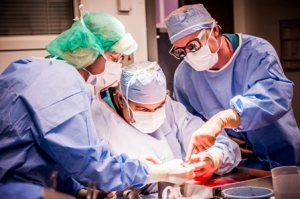Dr. Rainer Gruessner is an expert in the field transplantation surgery. He is the former Chairman of the Department of Surgery, Chief of the Division of Transplantation and Director of Hepatopancreaticobiliary Surgery and currently serves as a Professor of Surgery and Immunology at the University of Arizona. Although he has spent most of his career practicing within the United States of America, he received his education in the country of Germany. Rainer Gruessner obtained his medical degree and his medical thesis (“summa cum laude”) from the Johannes Gutenberg University School of Medicine in Mainz, Germany, in 1983. He obtained his professorial thesis (“Habilitation”) from the Philipps University in Marburg, Germany, in 1991. Rainer Gruessner did his residency at the Johannes Gutenberg University before completing a 2-year fellowship in transplantation surgery at the University of Minnesota. He also received additional clinical training in vascular and general surgery at Philipps University in Germany, and in living donor liver transplantation at Kyoto University in Japan. He is a member of the most prestigious surgical societies and has published over 600 manuscripts, abstracts and book chapters. He is the editor of 2 standard textbooks on transplant surgery. He is widely regarded as one of the most innovative surgeons practicing today and his been credited with performing a number of firsts in the field.

Dr. Rainer Gruessner is the former Chairman of the Department of Surgery at the University of Arizona. He held the position from 2007 to the current year of 2014 and was largely responsible for the complete rebuilding of the surgical department including the implementation of three new divisions along with numerous clinical programs. He also recruited over 60 new faculty members in order to significantly increase the operating room case volume. Dr. Rainer Gruessner introduced robotic and minimally invasive procedures throughout all Department of Surgery subspecialties allowing the Division of Cardiothoracic Surgery to become one of the largest robotic surgery programs of its kind in the nation.